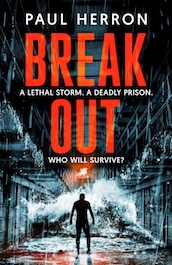
As I get older, I’m finding that a lot more phrases really annoy me. “Dad, when will you spend some time with us?” ; “Honey why do you always use incognito mode on your browser?”; “Yeah, I’m a social media influencer.”
But my biggest pet peeve is, “I was subverting expectations.” Usually this is said by snobby literary writers when they’re chasing the money (hahaha!) and writing genre books, but just can’t admit they’re actually writing genre. “Science Fiction? I don’t call it that. I call it future realism, but it doesn’t matter because I was taking all the cliches and subverting them. Aren’t I ever so clever?”
Slow clap.
The phrase is also used by filmmakers, usually when they’re writing or directing sequels and want to throw any previous character building out the window. (Rian Johnson, I’m looking at you. Luke would rather die than kill his own father, saying there was still good in him, but you want us to believe he’d try to murder his nephew in his sleep because of a bad feeling? Yeah, no. Not buying it. And him throwing away his lightsaber? No. That was Rian Johnson negligently tossing away previously established lore and characterisation for the sake of a shock image. It wasn’t based on character. It wasn’t earned. Saying “I was subverting expectations” then becomes an excuse for bad writing, not for saying something new or interesting.
Also see David Benioff and D.B. Weiss, showrunners for Game of Thrones. “We really wanted to subvert expectations.” Yeah, no. They ran out of source material. That was the problem. That and they wanted some big old Star Wars money please and thank you, so screw all the fans and screw all the characters, we’re just going to write everyone like total idiots so we can wrap this up toot suite. Did it work? No. Of course it didn’t. Because subverting expectations still have to be earned.
Don’t get me wrong. Subverting expectations, when done right, are a good thing. Stories and movies that rely solely on genre cliches become boring and predictable. What’s the point of creating anything if it doesn’t say something new? Readers and viewers crave stories that tell familiar tropes in new and interesting ways, and that’s what subverting expectations should mean. Ned Stark being beheaded at the beginning of Game of Thrones is a perfect example. No one expected that. Or even when Bran was tossed from the window by Jaime Lannister. The Red Wedding? I’m still traumatised from when I read it.
Look at Agatha Christie. Her detective is a sweet old lady that everyone underestimates. What about Reservoir Dogs? A movie about a diamond heist and we never see the heist. The ending of Sopranos. What were we expecting? Something. Not a cut to black. But it worked. It had us talking. It was a divisive finale, but David Chase earned it because of the stories told before the finale. Because of the life Tony Soprano lived, it could have gone either way. Happy ending, or assassinated while eating dinner with his family? That’s for us to decide now. It was an ending that subverted our expectations, and it worked.
Anyway, this is all a roundabout way of getting to my point. Subverting expectations is a very fine line. When people enjoy something, they want more of the same – but different. When it came to Breakout, (Original title “Lockdown”, which we had to change for er … obvious reasons), I wanted to write an action movie in book form. I love all movies. Love them, love them, love them. But I have a particular love for action thrillers, psychological thrillers, and crime thrillers. (I’m still going to write my own version of a black crime comedy a la Lock Stock and Two Smoking Barrels one day.)
You go into action movies with a particular set of expectations. Lots of set pieces. A moody protagonist, usually misunderstood or framed for a crime, maybe out for revenge. A sidekick, usually female, who can run in heels and look good while doing it. A crazed villain who make the life of the hero as difficult as possible. These are the tropes, the cliches, and this is where subverting expectations comes in. (You see? I did have a point.)
I wanted the characters in Breakout to be something … more. I didn’t want the villain to just be a mindless bad guy with no motivation. I didn’t want the female sidekick to be just a sidekick. I wanted Sawyer to be her own character, with her own motivations and life outside the book. I wanted her to challenge the main character, Jack Constantine, and stand up to him. To have her own ideas and disagree with his. And I wanted Constantine himself to be more than the generic cop in jail for a crime he didn’t commit. He very much did commit the crime he was accused of. And he tries to finish the job when he realises his wife’s killers have been moved to his prison because of the superstorm battering Miami.
This is where his conflict with Sawyer comes in. Do they do their best to survive, or does he use the opportunity to get his revenge knowing very well they’re most likely not going to survive the night anyway? He thinks he knows exactly what he’s going to do, but he changes over the course of the book. He’s influenced by Sawyer. She makes him grow and change. Not in any twee, preachy way. Just by being who she is and having an effect on Constantine. Because in the end, there can be only one- no hang on. Wrong tagline. In the end, he will have to decide if revenge is more important than life.
What does he choose? You’ll have to read the book to find out, but I hope I managed to keep it from being predictable.
There are other examples in the book where I hope I managed to subvert the tropes slightly. And not in any “I’m a literary writer and I’m not actually writing an action thriller” type of way. Breakout is unashamedly an action thriller. It revels in it. It’s fast-paced, wall to wall action, but with some (hopefully) interesting characters thrown in. It’s the type of book I want to read and the type of movie I’d want to watch.
Did I succeed in what I set out to do? That’s not for me to say. I wrote the book. It’s out of my hands now. All I hope is those who read it have a good time.
That’s all a writer can ask for.

Headline Publishing
RRP: £14.99
Released: March 4 2021
Adam Colcough says: "This is an assured book from an author who illustrates the promise of becoming a major player in waiting." Read the whole review.